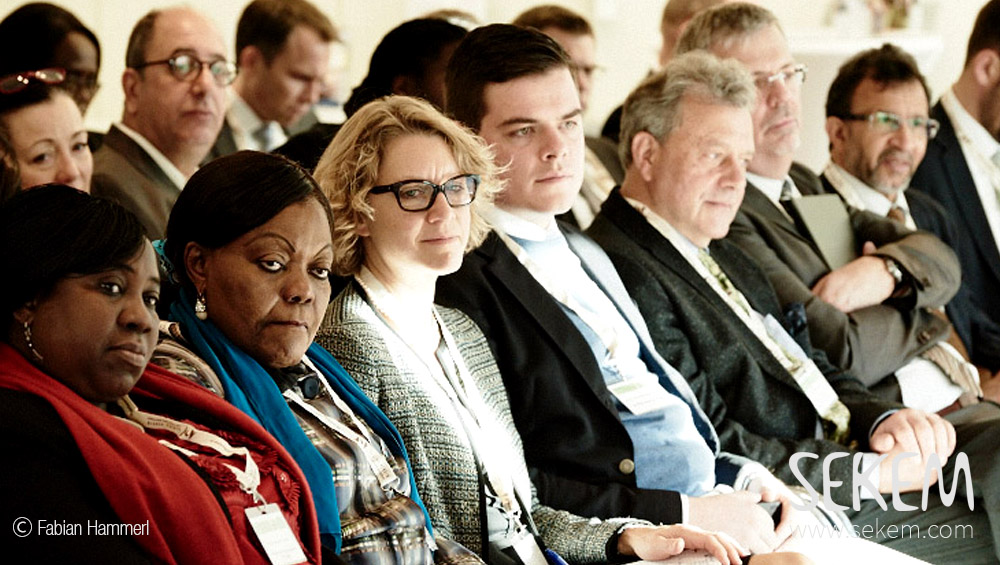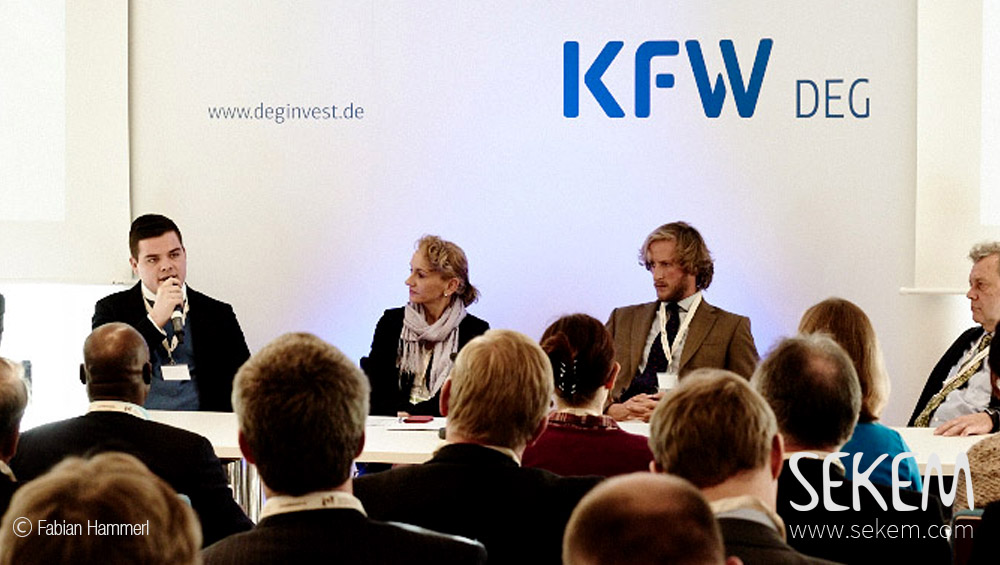Agribusiness, agro-processing and food security are receiving more and more awareness worldwide. Especially Africa is playing a key role. More than half of the African population is working in the agricultural business; still the continent has to import 30 tons of rice and wheat yearly. Investments in the agricultural sector are therefore necessary. On December 10, SEKEM attended the German-African Agribusiness Forum in Cologne, that was initiated by SEKEMs long-term partner the German Entrepreneurial Development Cooperation (DEG), the German Africa Association for Economy and the German Agribusiness Alliance.

SEKEMs Chief Sustainable Development Officer, Maximilian Abouleish-Boes, participated on behalf of SEKEM at the event that was aiming to bring together governmental, private and civil society representatives from Germany and various African states to discuss the development of agribusiness. “I find it very important that SEKEM stands in a dialogue with conventional agribusiness approaches”, Maximilian Abouleish said during the panel discussing with the topic “Challenges and Opportunities along the Value Chain”. “We hope to inspire people and convince them of the long-term competitive advantage of Organic agriculture and community development.” SEKEM took a special role during the conference, as it was particularly focussing on sustainable development and community building. Especially the fact that SEKEM is cooperating with around 400 small scale farmers and has established a big range of educational institutions, including the Heliopolis University for Sustainable Development, gave SEKEM a unique position.
“SEKEM needs to stand in dialogue with conventional agribusiness…”
Abouleish stated that conventional agribusiness approaches might be more profitable on the short-run, but in the same time he asked questions that appear when it comes to future perspectives: “How do we deal with all the environmental and social activities that do not appear on the bill of producers and consumers but are still relevant for development? And how do we empower all the small scale farmers and up-lift their communities?”
With these questions in mind, SEKEM is committed to sustainable and holistic development, which can be only realized successfully with the strong support of partners that are thinking in the same way. Maximilian Abouleish: “We highly appreciate the cooperation with DEG that started already in 1984. Back then, it was the first and only bank ready to support a visionary project in the Egyptian desert that many people considered as unrealistic.”
Organic Agriculture Conference in SEKEM
Get to know SEKEMs Department for Sustainable Development
SEKEM at COP 12 - Discussing Desertification

